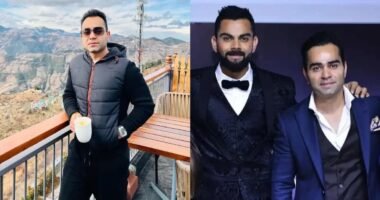Overview of Narendra Modi
Narendra Modi, the 14th and current Prime Minister of India, is a prominent political figure who has significantly influenced Indian and global politics. Known for his strong leadership and visionary initiatives, Narendra Modi Net Worth journey from a small-town tea seller to the helm of the nation is nothing short of inspirational.
Early Life and Background
Narendra Modi was born on September 17, 1950, in Vadnagar, a small town in Gujarat, India. He hails from a humble family of grocers. As a child, Modi showed a keen interest in helping his father at the family’s tea stall, a responsibility he continued to shoulder during his early youth. His upbringing in a modest environment instilled in him the values of discipline, perseverance, and empathy for the underprivileged.
Modi’s early life was marked by a deep interest in spirituality and service to the nation. He joined the Rashtriya Swayamsevak Sangh (RSS) at a young age, where he honed his organizational and leadership skills. This phase of his life laid the foundation for his entry into politics and his unwavering commitment to public service.
Narendra Modi Net Worth
As of 2024, Narendra Modi’s net worth is estimated to be around INR 3 crore (approximately USD 400,000). This includes his official salary, savings, and modest investments. Being a public servant, Modi’s financial disclosures are transparent, as required by Indian law.
Breakdown of Net Worth
| Asset | Details |
|---|---|
| Net Worth (2024) | INR 3 crore |
| Primary Residence | Official PM Residence (No private property) |
| Investments | Fixed Deposits and Savings |
| Vehicles | Does not own a personal vehicle |
| Liabilities | None |
Narendra Modi’s Age
Narendra Modi is 74 years old as of 2024. Born on September 17, 1950, he continues to exhibit remarkable energy and dedication to his role as Prime Minister. His age has not deterred his active involvement in national and international affairs, showcasing his commitment to public service.
Narendra Modi’s Education
Narendra Modi’s educational journey reflects his determination to overcome challenges and achieve excellence. He earned a Bachelor’s degree in Political Science from the University of Delhi via distance education. Later, he pursued a Master’s degree in Political Science from Gujarat University. His academic background has provided him with a strong foundation in governance and policy-making.
Academic Achievements
| Degree | Institution | Field | |————————|————————| | Bachelor’s Degree | University of Delhi | Political Science | | Master’s Degree | Gujarat University | Political Science |
Narendra Modi’s Salary
Narendra Modi’s salary as the Prime Minister of India is INR 2 lakh per month (approximately USD 2,500). This amount is part of his earnings as a public servant and does not include additional perks and allowances.
Additional Benefits and Perks
In addition to the base salary, Modi receives:
- Allowances: Covering housing, travel, and daily expenses.
- Official Residence: The Prime Minister is provided a state-owned residence at 7, Lok Kalyan Marg, New Delhi.
- Medical Coverage: Comprehensive healthcare facilities for himself and his family.
- Travel Expenses: Official travel by air or road is covered by the government.
Salary Breakdown
| Component | Amount (INR) |
| Base Salary | 2,00,000 |
| Allowances | 2,50,000 |
| Other Benefits | Official Residence, Travel, Medical Coverage |
Modi is known for his simple lifestyle and often redirects a significant portion of his earnings towards charity and public welfare initiatives.
Highlights of Narendra Modi’s Achievements
- Prime Minister of India since 2014, leading landmark initiatives such as Digital India, Make in India, and Swachh Bharat Abhiyan.
- Recognized globally for his diplomatic skills and efforts to strengthen India’s international relations.
- Known for his transformative economic policies, including GST implementation and demonetization.
Disclaimer: This article is for informational purposes only. While every effort has been made to ensure the accuracy of the information presented, readers are advised to verify details from official sources and exercise discretion when interpreting the data.









